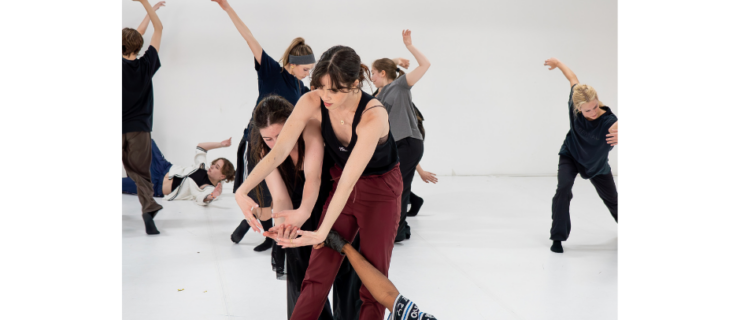7 Things to Consider If You're Thinking of Graduating Early
Dancers are overachievers by nature. When someone asks for a double pirouette, we give them a triple. When an advisor tells us to take three technique classes, we take five. So it’s unsurprising that dance majors might wonder if they can find a way to complete their degrees in fewer than the traditional four years. “I’ve had dance majors who have also double-majored and graduated early,” says Katie Langan, the chair of dance at Marymount Manhattan College. But just because you can doesn’t always mean that you should. If you’re tempted to hop on the fast track, take time to consider how it could affect you in both the short term and the long term.
Before You Move the Tassel
Thinking about speeding up your college timeline? Start with these three steps:
1.
Talk to your advisors. Approach your advisor early. They’ll help you map out your remaining classes, examine how many credits you’ll need to take per semester and walk you through whether or not graduating early is feasible. Remember, in some dance programs an accelerated track isn’t an option due to the design of the curriculum. Others, like New York University’s Tisch School of the Arts, are set up in a three-year timeline from the start.
2. Examine the job market. While it’s impossible to predict the future, you should take into account the state of the economy. With dance institutions reeling from the pandemic right now, Victoria Marks, professor of dance at University of California, Los Angeles, recommends that students table the idea of an early graduation until the job market has recovered.
3. Have an honest conversation about finances. Graduating early can save you money on tuition, and be a faster path to earning an income. But don’t forget that the clock starts ticking on paying back your student loans once you have that diploma. Have you been making ends meet through scholarships? Have your parents been pitching in? These lifelines may not be available to you postgraduation. “If you have school loans or financial aid, having to fend for yourself can be very, very challenging,” Marks says. Take a candid look at your finances and talk to anyone who supports you monetarily to figure out what your budget will need to look like in order for you to be financially independent.
Eager to start working?
Early graduation typically makes most sense for students who see school simply as a means to an end, and want to start their professional careers as quickly as possible.
Why you might want to stay…
To relish the full college experience. Earning an undergraduate degree is typically a once-in-a-lifetime experience. “Enjoy the ride,” Langan says. “When it’s done so quickly, I don’t know that we get the chance to really look back and ruminate.”
For emotional and artistic maturity.
Langan rarely encourages her students to graduate early primarily because she doesn’t want them to miss out on the profound growth that happens during senior year. Many programs, including Marymount’s, have a special course for seniors designed to help them launch into the working world. Some schools help set up auditions, and invite choreographers and directors to school showcases. Dancers who graduate early don’t always enjoy this kind of support system.
For a more manageable workload.
Even if you feel comfortable with piling on more credits every semester, think about whether or not your class schedule will allow time to take advantage of everything else college has to offer, like extracurriculars and performance opportunities.




